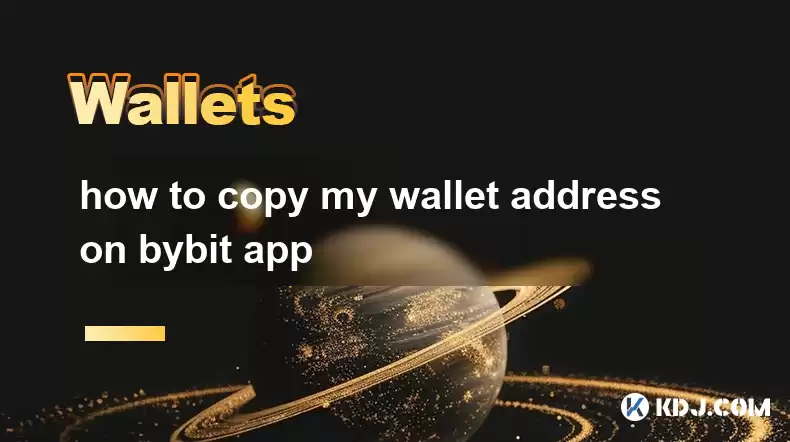-
 Bitcoin
Bitcoin $118900
-2.33% -
 Ethereum
Ethereum $4288
-0.13% -
 XRP
XRP $3.151
-3.21% -
 Tether USDt
Tether USDt $1.000
0.02% -
 BNB
BNB $809.5
-1.17% -
 Solana
Solana $175.7
-4.75% -
 USDC
USDC $0.0000
0.01% -
 Dogecoin
Dogecoin $0.2246
-5.75% -
 TRON
TRON $0.3473
2.19% -
 Cardano
Cardano $0.7809
-5.18% -
 Chainlink
Chainlink $21.38
-3.48% -
 Hyperliquid
Hyperliquid $43.29
-5.53% -
 Stellar
Stellar $0.4375
-3.21% -
 Sui
Sui $3.685
-6.68% -
 Bitcoin Cash
Bitcoin Cash $595.2
3.50% -
 Hedera
Hedera $0.2483
-6.60% -
 Ethena USDe
Ethena USDe $1.001
-0.01% -
 Avalanche
Avalanche $23.03
-5.28% -
 Litecoin
Litecoin $119.5
-5.02% -
 Toncoin
Toncoin $3.395
-0.07% -
 UNUS SED LEO
UNUS SED LEO $9.007
-1.19% -
 Shiba Inu
Shiba Inu $0.00001304
-5.44% -
 Uniswap
Uniswap $11.35
1.57% -
 Polkadot
Polkadot $3.898
-5.43% -
 Cronos
Cronos $0.1671
-0.16% -
 Ethena
Ethena $0.8121
-2.45% -
 Dai
Dai $1.000
0.02% -
 Bitget Token
Bitget Token $4.412
-1.73% -
 Monero
Monero $264.0
-0.64% -
 Pepe
Pepe $0.00001128
-8.12%
how to copy my wallet address on bybit app
To copy your wallet address on Bybit, open the app, go to "Wallet," select your crypto, and long-press the address to copy. Always double-check for accuracy.
Mar 30, 2025 at 08:42 pm

How to Copy Your Wallet Address on the Bybit App
Locating and Copying Your Bybit Wallet Address
The process of copying your wallet address on the Bybit app is straightforward, but requires careful attention to detail to avoid errors. Incorrectly copying your address can lead to irreversible loss of funds. Always double-check before sending any cryptocurrency. Bybit supports various cryptocurrencies, and each one has its own unique deposit address. You need to ensure you're copying the correct address for the specific cryptocurrency you intend to deposit.
First, open the Bybit app on your mobile device. Navigate to the "Wallet" section. This is usually found in the bottom navigation bar or within a menu accessible via a hamburger icon. Once in the Wallet section, you'll see a list of your available cryptocurrencies.
To find the deposit address for a specific coin, select the cryptocurrency you wish to deposit. For example, if you're depositing Bitcoin, tap on the Bitcoin icon. This will open a screen displaying your Bitcoin wallet address, along with a QR code.
Copying Your Wallet Address: Step-by-Step Guide
Locate the Address: On the deposit screen for your chosen cryptocurrency, you will see your unique wallet address displayed. It's usually a long string of alphanumeric characters.
Select and Copy: Most mobile operating systems offer a long-press option. Long-press on your wallet address. A menu should appear offering the option to "Copy" or "Select All and Copy." Choose the "Copy" option.
Verify the Copy: After copying, it's crucial to verify that the address was copied correctly. You can paste the address into a notepad or another text editor to visually check for any errors. A single incorrect character can render the address unusable.
Use the QR Code (Optional): Bybit also provides a QR code representation of your wallet address. Many cryptocurrency wallets and exchanges allow you to scan QR codes for faster and more accurate address input. This method minimizes the risk of manual input errors.
Understanding Different Wallet Types on Bybit
Bybit offers different wallet types, each serving a specific purpose. Understanding these differences is vital for choosing the right address when depositing funds. The most common types you'll encounter are spot wallets and futures wallets.
Spot Wallets: These wallets hold your cryptocurrencies for trading or storing. When depositing cryptocurrency for trading on the spot market, you'll need to use the spot wallet address. Misusing this could result in lost funds.
Futures Wallets: These wallets are specifically designed for trading Bybit's perpetual contracts and futures products. Funds in your futures wallet cannot be directly withdrawn. These are separate from your spot wallets.
Always ensure you are using the correct wallet type for your intended transaction. Depositing funds to the wrong wallet will likely result in the loss of your cryptocurrency.
Security Considerations When Handling Your Wallet Address
Sharing your wallet address is generally safe, as it only allows others to send cryptocurrency to you. It does not allow access to your funds or control over your account. However, vigilance is still crucial.
Beware of Phishing: Never share your wallet address or any other sensitive information through unsolicited emails, messages, or websites claiming to be Bybit. Bybit will never directly ask for your private keys or wallet passwords.
Double-Check Addresses: Always meticulously verify the recipient's address before sending any cryptocurrency. A small typo can send your funds to the wrong person, resulting in permanent loss.
Use Strong Passwords and Two-Factor Authentication (2FA): Protect your Bybit account with a strong, unique password and enable 2FA for an extra layer of security. This significantly reduces the risk of unauthorized access.
Regularly Review Your Transactions: Periodically review your transaction history to ensure all deposits and withdrawals are legitimate. Report any suspicious activity immediately to Bybit support.
Troubleshooting Common Issues
Sometimes, you might encounter issues while trying to copy your wallet address. Here are some common problems and their solutions:
Address Not Displaying: Ensure you've selected the correct cryptocurrency and that your internet connection is stable. Try restarting the app or your device.
Copy Function Not Working: Try using a different method, such as manually typing the address (highly discouraged due to error risk), or using the QR code scanner. If the problem persists, contact Bybit support.
Incorrect Address Copied: Always verify the address before sending any funds. Use a text editor to check for errors.
Frequently Asked Questions (FAQs)
Q: What happens if I copy the wrong wallet address?
A: Sending cryptocurrency to the wrong address usually results in the irreversible loss of your funds. There's typically no way to recover them.
Q: Can I use the same wallet address for multiple deposits?
A: Yes, you can reuse your wallet address for multiple deposits of the same cryptocurrency. Each transaction is independent.
Q: Is it safe to share my wallet address with others?
A: Sharing your wallet address is generally safe, as it only allows others to send you cryptocurrency. However, be cautious about who you share it with and avoid sharing it on untrusted platforms.
Q: What should I do if I suspect my wallet address has been compromised?
A: Immediately contact Bybit support and change your password. Enable 2FA if you haven't already.
Q: How do I find my Bybit wallet address for a specific token (e.g., ETH)?
A: Navigate to your Bybit wallet, select the ETH tab (or the specific token you need), and look for the deposit address.
Q: My Bybit app is not showing my wallet address. What should I do?
A: Ensure you have a stable internet connection. Try restarting the app or your device. If the problem persists, contact Bybit support.
Disclaimer:info@kdj.com
The information provided is not trading advice. kdj.com does not assume any responsibility for any investments made based on the information provided in this article. Cryptocurrencies are highly volatile and it is highly recommended that you invest with caution after thorough research!
If you believe that the content used on this website infringes your copyright, please contact us immediately (info@kdj.com) and we will delete it promptly.
- Dogecoin, Presale, Surge: Riding the Meme Coin Wave
- 2025-08-12 11:10:12
- Dogecoin, Tron, and the ROI Reality Check: What's a Crypto Investor to Do?
- 2025-08-12 11:15:12
- Ethereum Layer-2 Scaling Competition Heats Up as ETH Breaks $4K
- 2025-08-12 10:30:12
- China Regulation, Stablecoins, and BNB Presale: Navigating the Crypto Landscape
- 2025-08-12 11:30:12
- Meme Coins, Investment, and Token Burns: What's Hot in 2025?
- 2025-08-12 10:30:12
- BlockDAG, Chainlink, Hedera: The Cryptos Enterprises are Eyeing
- 2025-08-12 09:30:12
Related knowledge

How to manage your portfolio in Exodus wallet
Aug 08,2025 at 10:07pm
Understanding the Exodus Wallet InterfaceThe Exodus wallet is a non-custodial cryptocurrency wallet that supports a wide range of digital assets. When...

How to reset your MetaMask password
Aug 08,2025 at 01:28pm
Understanding the MetaMask Password Reset ProcessMany users confuse the MetaMask password with the seed phrase or private key, but they serve differen...

How to buy Dogecoin on MetaMask
Aug 08,2025 at 03:42am
Understanding Dogecoin and MetaMask CompatibilityDogecoin (DOGE) is a popular meme-based cryptocurrency that operates on its own blockchain, originall...

How to switch between networks in Trust Wallet
Aug 09,2025 at 11:07am
Understanding Network Switching in Trust WalletSwitching between networks in Trust Wallet allows users to manage assets across different blockchains, ...

How to set up Face ID for MetaMask
Aug 12,2025 at 02:42am
Understanding Face ID and Its Role in MetaMask SecurityMetaMask is a widely used cryptocurrency wallet that allows users to interact with the Ethereum...

How to set up Face ID for MetaMask
Aug 11,2025 at 09:28am
Understanding Face ID and Its Role in MetaMask SecurityFace ID is a biometric authentication system developed by Apple that uses facial recognition to...

How to manage your portfolio in Exodus wallet
Aug 08,2025 at 10:07pm
Understanding the Exodus Wallet InterfaceThe Exodus wallet is a non-custodial cryptocurrency wallet that supports a wide range of digital assets. When...

How to reset your MetaMask password
Aug 08,2025 at 01:28pm
Understanding the MetaMask Password Reset ProcessMany users confuse the MetaMask password with the seed phrase or private key, but they serve differen...

How to buy Dogecoin on MetaMask
Aug 08,2025 at 03:42am
Understanding Dogecoin and MetaMask CompatibilityDogecoin (DOGE) is a popular meme-based cryptocurrency that operates on its own blockchain, originall...

How to switch between networks in Trust Wallet
Aug 09,2025 at 11:07am
Understanding Network Switching in Trust WalletSwitching between networks in Trust Wallet allows users to manage assets across different blockchains, ...

How to set up Face ID for MetaMask
Aug 12,2025 at 02:42am
Understanding Face ID and Its Role in MetaMask SecurityMetaMask is a widely used cryptocurrency wallet that allows users to interact with the Ethereum...

How to set up Face ID for MetaMask
Aug 11,2025 at 09:28am
Understanding Face ID and Its Role in MetaMask SecurityFace ID is a biometric authentication system developed by Apple that uses facial recognition to...
See all articles

























































































